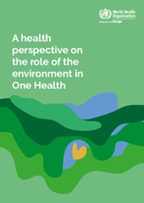Improving health and well-being through nature
WHO is dedicated to safeguarding health and enhancing well-being by incorporating nature and biodiversity into health policy.
Nature plays a crucial role in human health and well-being. Exposure to natural environments has been linked to numerous physical and mental health benefits, including reduced stress, improved mood, enhanced cognitive function and lower risk of chronic diseases. Green spaces, forests and bodies of water provide opportunities for physical activity, social interaction and relaxation, all of which contribute to overall health.
Biodiversity and functional ecosystems also support human health and well-being through diverse ecosystem services such as air purification, water filtration and climate regulation. However, urbanization and land use change, environmental degradation and pollution as well as climate change threaten natural environments, leading to biodiversity loss and increased health risks. The degradation of ecosystems can contribute to respiratory diseases, cardiovascular conditions and the spread of infectious and zoonotic diseases.
Recognizing these connections, public health initiatives increasingly use nature and integrate nature-based solutions to protect health and promote well-being. Embedding nature conservation efforts and environmental sustainability elements in sectoral policies is essential for safeguarding both human and planetary health.
The WHO Regional Office for Europe actively addresses the intersection of nature and health through various initiatives:
- research and evidence: the WHO Regional Office for Europe conducts research and evidence and publishes reports highlighting the links between nature, biodiversity and health, emphasizing the importance of preserving natural environments and integrating nature in urban planning to enhance public health;
- policy: through scientific evidence, the WHO European Centre for Environment and Health provides policy priorities to help decision-makers to implement strategies that promote health and well-being through nature approaches; and
- One Health approach: WHO collaborates with organizations like the Food and Agriculture Organization, United Nations Environment Programme and World Organisation for Animal Health to address health challenges at the intersection of human, animal and environmental health.
These efforts aim to create healthier environments by fostering sustainable interactions between nature and human health.












